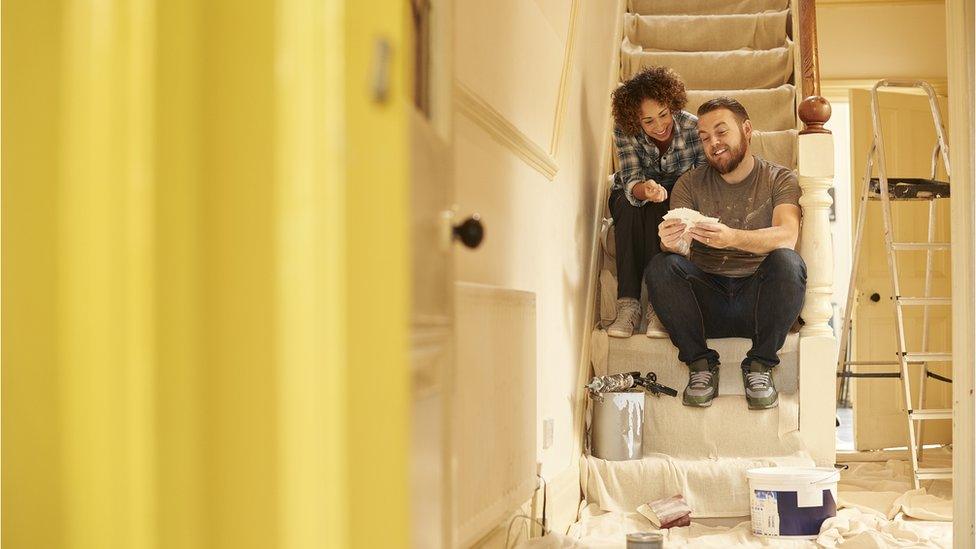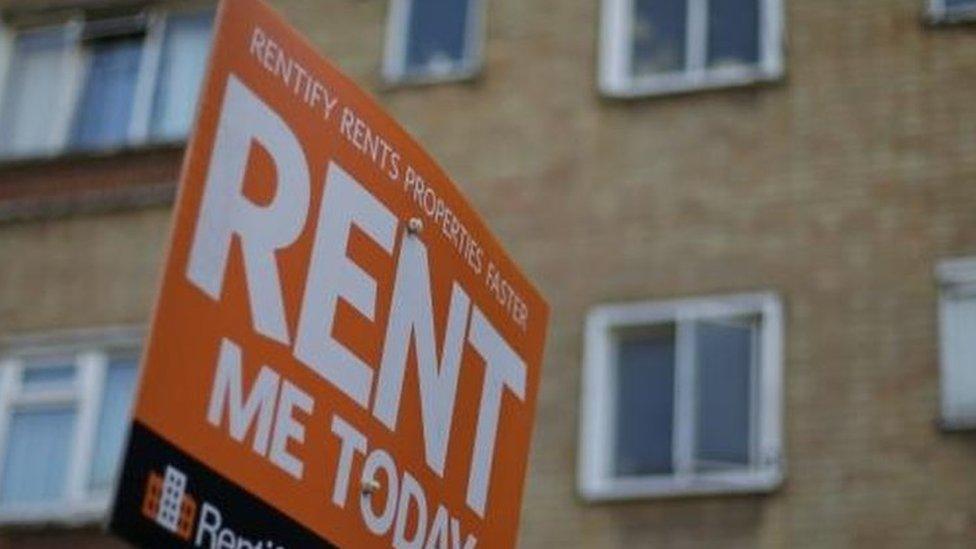Queen's Speech 2017: Lettings fees to be banned
- Published
- comments

More than six months after first suggesting the idea, the government has announced plans to ban fees to lettings agents in England.
A new Tenants' Fees Bill was announced in the Queen's Speech, which will stop tenants having to pay money to agents.
The commitment was announced by the Conservatives in the 2016 Autumn Statement.
ARLA Propertymark, which represents letting agents, said the new rules would cost 4,000 jobs.
However the measure is likely to pass into law, as all the main parties had it in their election manifestos.
The average amount paid in fees is currently £223, according to government figures. The chancellor, Philip Hammond, previously said that 4.3m households pay such fees every year.
However, the housing charity Shelter found that one in seven renters pays more than £500, and tenants in London have complained about fees of up to £2,000.
The fees are for taking references, getting credit checks, or investigating immigration status.
Higher rents?
When the bill becomes law, landlords will have to find the money to pay for such fees themselves.

Tenants in Scotland do not pay fees to letting agents
ARLA Propertymark said that as a result landlords would lose £300m, and would be likely to increase rents.
"A ban on letting agent fees will cost the sector jobs, make buy-to-let investment even less attractive, and ultimately result in the costs being passed on to tenants," said David Cox, the organisation's chief executive.
Letting agents' fees are already banned in Scotland.
The new bill will also allow tenants to recover any fees that have been charged unlawfully.
Bill 'later this year'
In addition the government said it will make the process more transparent, as renters are currently charged varying amounts.
However, lettings agents in England and Wales are already legally required to publicise their rates.
Research by Citizens' Advice found that 42% of people paying letting agents' fees had to borrow money to pay them.
A government spokesperson said a draft bill will be published "later this year".
- Published23 November 2016
